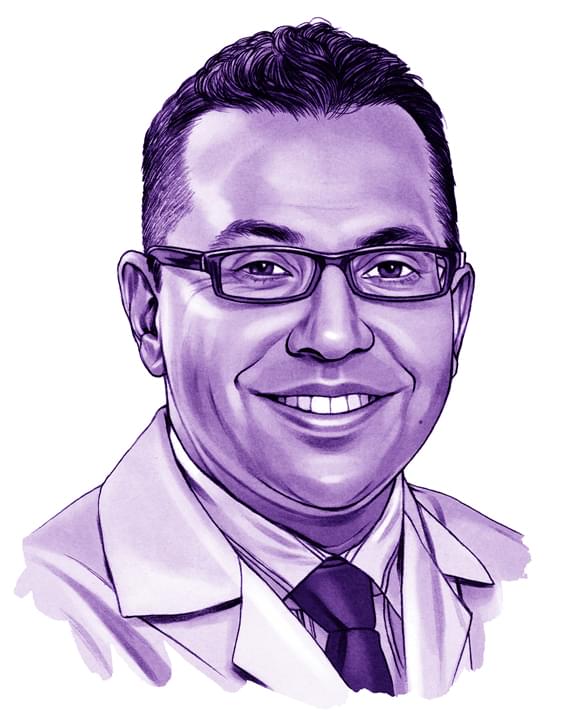
“Until recently, there’s been a dearth of information on sex differences in sports medicine. For 15-plus years, I have researched sex differences in sports injuries, prevention, and recovery so we can better serve female athletes. Sex differences have been identified in bone stress injuries, ACL tears, shoulder instability, and more. Although my training didn’t teach much of this, it’s a privilege to teach future orthopaedic surgeons, especially women orthopaedic surgeons, to improve musculoskeletal care for all.”
Elizabeth Matzkin, MD, FAAOS, chief, Women’s Sports Medicine

“In my work with people with chronic pain, I’ve found women experience greater pain sensitivity and are more frequently diagnosed with chronic pain conditions. However, they consistently receive worse pain care. While this was not part of my training, this is something I examine in my research.”
Samantha Meints, PhD, psychologist, Center for Pain Management

“Most studies have shown that women are affected by pleural mesothelioma less frequently than men, owing to less job-related exposure to asbestos. However, women who develop this form of cancer usually live longer than men after surgery and chemotherapy. Our researchers have identified biomarkers suggesting these differences between men and women are related to estrogen-responsive tumor pathways, which may influence cancer progression. Research into the differences between men and women will continue to provide important clues to better understand cancer and how to best treat everyone.”
Raphael Bueno, MD, chief, Division of Thoracic and Cardiac Surgery; and co-director, The Lung Center; Fredric G. Levin Distinguished Chair in Thoracic Surgery and Lung Cancer Research

“We found that despite spending more time with patients, women primary care doctors earn less than men because they conduct fewer visits per year. Prior research shows women doctors spend extra time counseling patients and providing preventive care, which leads to better patient health. Taken together, these results imply that the way we usually pay doctors doesn’t reward what patients or doctors truly value. Women doctors seem to spend that extra time, but at a personal cost.”
Ishani Ganguli, MD, MPH, general internist, Division of General Internal Medicine and Primary Care

“With our collaborators at the Brigham’s Ann Romney Center for Neurologic Diseases, we are very interested in understanding sex-specific differences in Parkinson’s and related disorders. These were thoroughly understudied when I was in training, although the epidemiologic differences were starting to be identified.”
Vikram Khurana, MD, PhD, chief, Division of Movement Disorders

“I wasn’t trained in women’s health during midlife through either medical school or residency, despite taking electives in women’s health and being interested in OB/GYN and preventive care. When I decided to do a fellowship in women’s health, I specifically looked for programs that would fill that gap and give me the teaching and clinical experience I wanted.”
Tara Iyer, MD, NCMP, lead physician, Menopause and Midlife Clinic

“During my training, there was little recognition of the sex differences that may exist between female and male hearts. I recall some male physicians telling me that women were essentially ‘little men’ and there was no true biologic plausibility to suggest any sex differences. It’s now understood that this is not the case. Our research is unraveling these distinguishing features, including the possible effects of sex hormones in cardiovascular disease.”
Michelle L. O’Donoghue, MD, MPH, McGillycuddy-Logue Distinguished Chair in Cardiology
(Illustrations by Michael Hoeweler)

